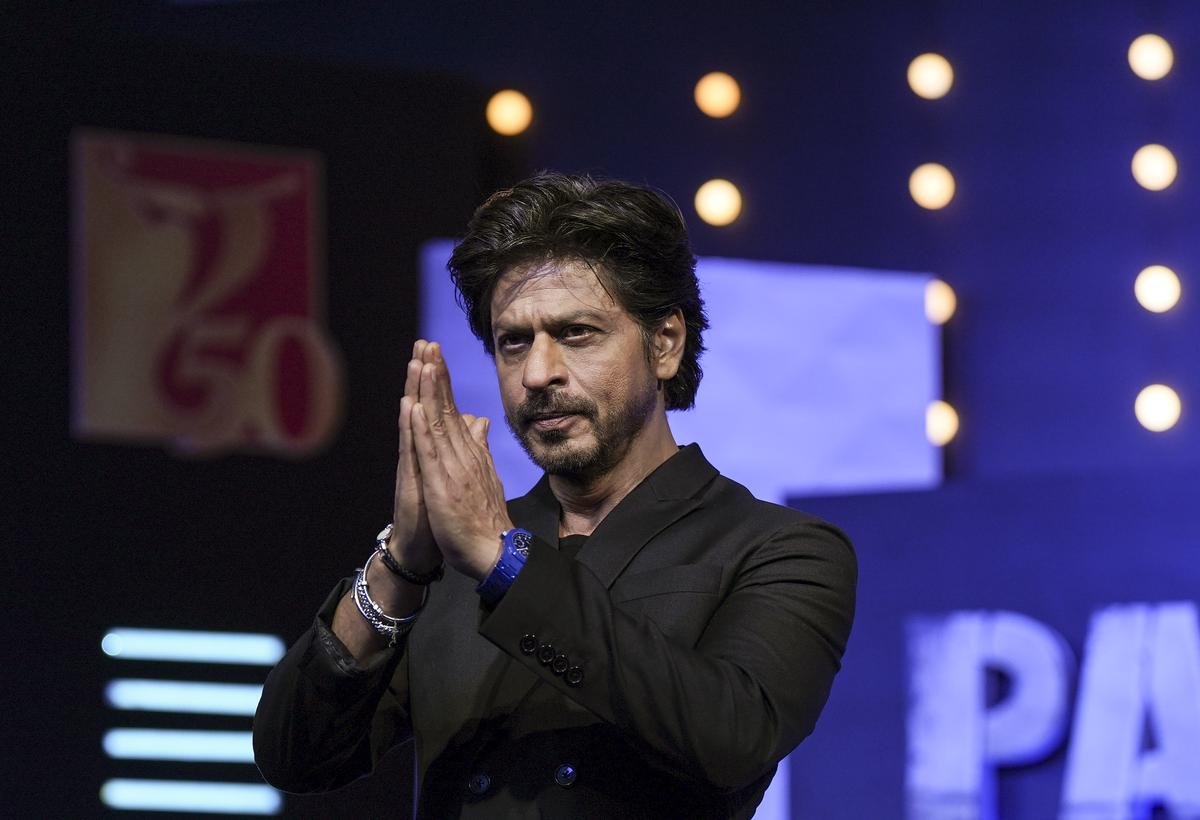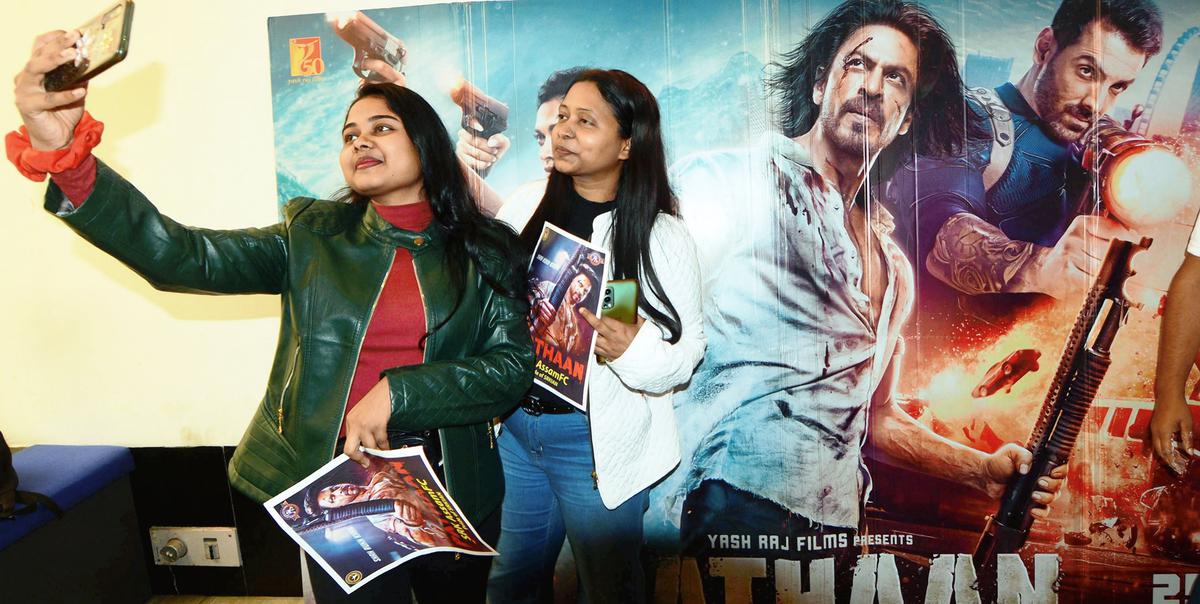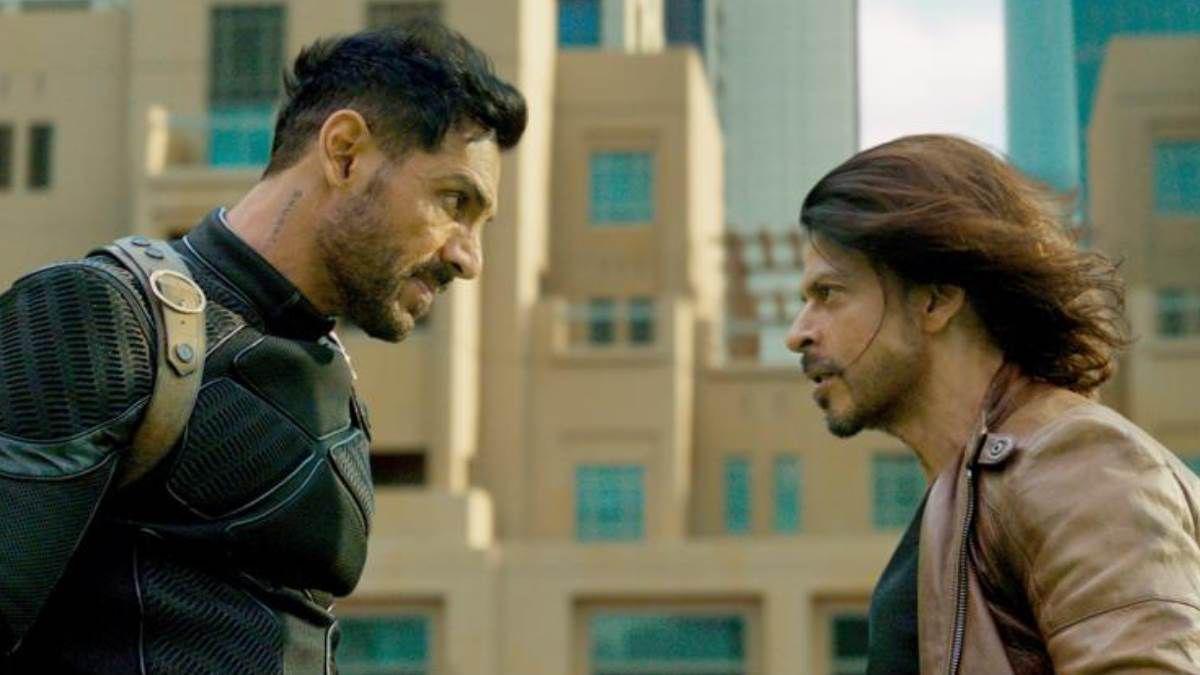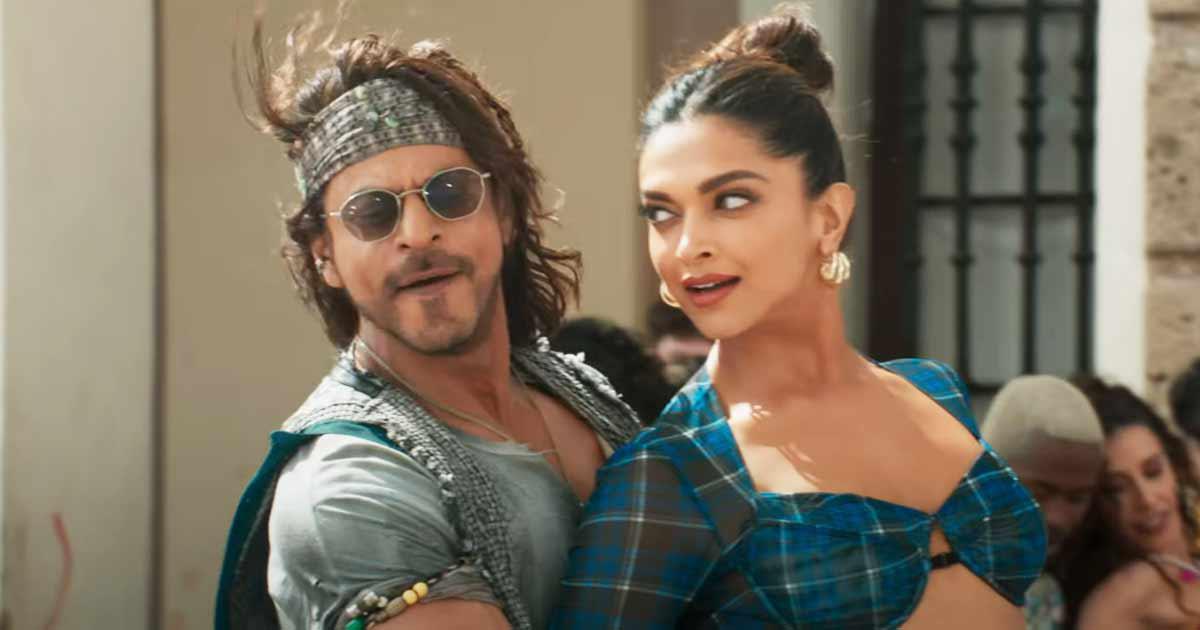With ‘Pathaan,’ Shah Rukh Khan comes out on top of the ‘Raktabeej’ of hate
Beyond the stylish blend of unrestrained action, glamour, and punchlines delivered at a breakneck pace, Siddharth Anand’s Pathaan is a minefield of symbolism and allegorical references that make the film more than the sum of its parts.
An answer to those who want to paint the country in one colour, it has emerged as an antidote to the cancel culture. Anand is the grandson of eminent screenwriter Inder Raj Anand, an active member of the Indian People’s Theatre Association, who collaborated with Raj Kapoor on landmark films like Anari and Sangam and wrote Kalia and Shahenshah for Amitabh Bachchan.
In Pathaan, the writing refrains from demonising nationalities and religions and for a tentpole, the characters are not cardboard. Just before Partition, Prithviraj Kapoor mounted a play called Pathan that appealed for communal harmony when it was becoming increasingly impossible to believe each other. Here an Indian spy and an ex-ISI agent get over their trust deficit to save innocent lives.
After a bumper opening week, Khan likened the main actors — Deepika Padukone, John Abraham, and himself to Amar, Akbar, and Anthony, the iconic characters of the Manmohan Desai film that remains a benchmark in bringing out the secular character of the film industry. But in the expanding spy universe of Yash Raj Films, we have a spy without a first name taking on a rogue agent without a surname to safeguard the country from a weapon of mass destruction, named after a monster of Hindu mythology. One is an orphan who is brought up by the country and the other is called Jim perhaps because it rhymes with gym, the soul station of Abraham!

Shah Rukh Khan.
| Photo Credit:
PTI
Using the delicious liberties that a spy-thriller allows, writers Sridhar Raghavan and Abbas Tyrewala who have had a reputation of writing layered narratives in a popular idiom have shot down the possibilities of the fragile souls getting hurt and along the way have intelligently intertwined the stories of Pathaan and Shah Rukh Khan. It is hard to delineate where one segues into the other.
Unlike his contemporaries, Khan makes for a different kind of action hero. He is slightly more realistic because he does not mind getting beaten up on the screen. In fact, those who have followed his work would know that he comes into form only after he gets dirty and stained with blood.
Before the release of Pathaan, his real-life image was that of a people’s star pushed into a corner by a series of box office duds. Last year, his son had to spend days in jail on drug charges that turned out to be false and fabricated. It was followed by the boycott wave because of the ‘Muslim’ title of his comeback vehicle after the pandemic and took the form of a politically motivated controversy around the song Besharm Rang.

The repeated reference to the Japanese art of kintsugi in the film underscores Shah Rukh Khan’s ability to join broken hearts and bring people together
| Photo Credit:
PTI
Khan, who loves to be snarky, maintained a dignified silence all through and focused on what he does best on the screen to get the audience by his side: fighting back after taking body blows. His return is much like the opening scene of the film where Pathaan announces his presence with “Zinda Hai” in a gravelly voice.
The repeated reference to the Japanese art of kintsugi in the film, first as a hobby and then as a philosophy, underscores Khan’s ability to join broken hearts and bring people together. Like Pathaan, he lost his parents early in life and the outsider became a star because of the love of audience.
Hailing from Peshawar, Khan’s father, Mir Taj Mohammed Khan was a follower of Khan Abdul Ghaffar Khan who fought for an independent and united India. So, when Afghanistan turns out to be the second home of Pathaan, it rings a bell, not only in India but in the neighbourhood that goes up to West Asia as well, and perhaps explains the film’s unprecedented success in the region which was once known for the non-violent struggle of Khudai Khidmatgars and of course the genial Kabuliwala.

John Abraham and Shah Rukh Khan in ‘Pathaan’.
And when he tells Jim and his gang that if they would party in Pathaan’s house, he would come for mehman nawazi (hospitality), it seems he is answering to his detractors who intruded into his personal space.
Moreover, the narrative is posited in a world where terrorism has no religion, and like many businesses these days, it is outsourced to a third party that has no direct interest in the conflict. It goes with the idea that many observers hold that organisations like Daesh are not Islamic groups in the true sense and are just a proxy of the vested interests in the West that have been created to demonise the religion and keep the oil-rich region in turmoil. Perhaps, that is why there is no mention of the U.S. and Israel in the film, and Russia is shown as a friendly ally.
In the crucial meeting of two agents in a moving train, before Tiger, his scarf (which has a startling resemblance to the Palestinian keffiyeh) makes an entry into the frame, and notably in the hands of Salman, it becomes a weapon to slay the enemies.
Over the years, a secular, well-meaning Muslim character in Hindi films is one who can hold a glass of wine. Rubina Mohsin carries forward that cliché. Evidently, a Pakistani Muslim girl in a revealing saffron outfit does not hurt the sentiments of the prude boycott crowd which was, ironically, burning Padukone’s effigies just a few weeks back. And the conservative fatwa issuing mullah cannot take umbrage because she drinks like a fish. A combination of glamour and guts, Rubina demands a separate film.

SRK and Deepika Padukone in a still from the film.
It might be carrying forward the Veer-Zara template in a patriarchal society, but Pathaan and Rubina’s team provides the Pakistani audience something to chew on as well. The cancer-stricken Pakistani general who outsources the operation against India admits that “the job cannot be done by a Khuda Ka Banda (believer) and that they had to make friends with a Shaitan (monster).”
Pathaan and Jim offer two sides of a soldier. Jim, a rogue Indian agent, reminds us that he has no love lost for Pakistan, does not believe in the concept of fatherland and motherland, and in the future, he could very well offer his services to India for the right price. Both Pathaan and Jim understand each other’s position. In fact, during their first meeting, Jim says that in another world, they would have been friends and Pathaan tells his superiors that they made a good soldier their enemy by not lending a helping hand during his personal crisis.
And above all, when the film distinguishes between the nation being a mother or a lover, it gives a voice to the current dispensation’s idea of nationalism. A son cannot betray his mother but love for the beloved is based on reciprocity. During the climax when Pathaan paraphrases John F. Kennedy’s iconic statement: Ask not what the country can do for you, ask what you can do for your country, it underscores the ruling party’s increasing emphasis on citizens’ duties than their rights.
No wonder, with such a rich ammunition of allegory, Pathaan has annihilated the Raktabeej of hate. At least for the time being.
For all the latest Entertainment News Click Here
For the latest news and updates, follow us on Google News.
